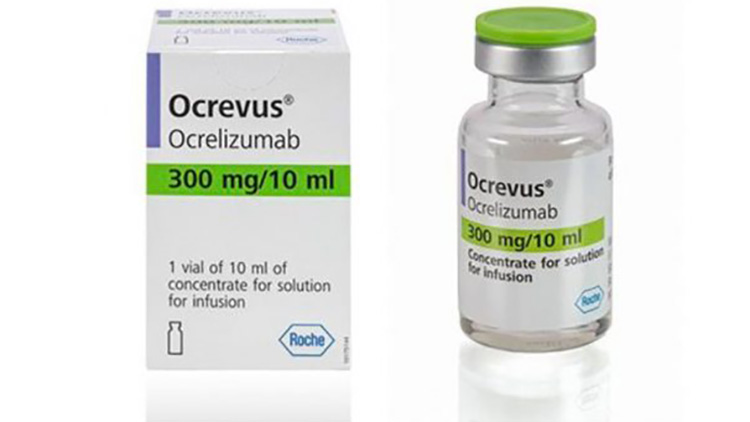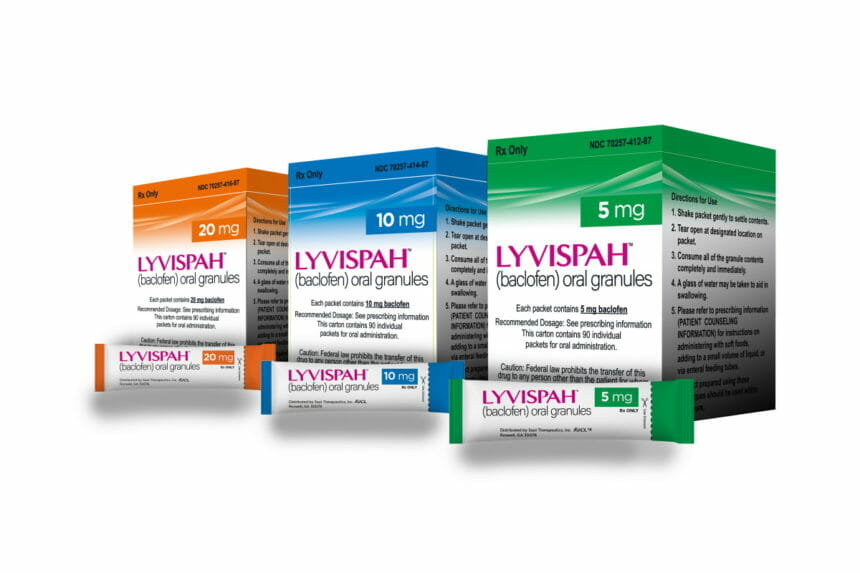Ocrevus (ocrelizumab) vs Lyvispah (baclofen)
Ocrevus (ocrelizumab) vs Lyvispah (baclofen)
Ocrevus (ocrelizumab) is a monoclonal antibody medication specifically designed for the treatment of multiple sclerosis (MS), particularly primary progressive MS and relapsing forms of MS, working by targeting certain immune cells that are thought to contribute to the disease's progression. Lyvispah (baclofen) is a muscle relaxant and antispastic agent used to relieve muscle spasms, which can be a symptom in MS but also treats a variety of spasticity-related conditions, not directly influencing the course of MS itself. When deciding between the two, a patient should consider that Ocrevus is used to modify the disease course of MS, while Lyvispah is aimed at symptom management, particularly for spasticity; the choice would depend on the individual's specific condition and treatment goals as determined by a healthcare provider.
Difference between Ocrevus and Lyvispah
| Metric | Ocrevus (ocrelizumab) | Lyvispah (baclofen) |
|---|---|---|
| Generic name | Ocrelizumab | Baclofen |
| Indications | Primary Progressive Multiple Sclerosis (PPMS), Relapsing forms of Multiple Sclerosis (RMS) | Spasticity due to multiple sclerosis or spinal cord injury, may also be used for spasticity in amyotrophic lateral sclerosis |
| Mechanism of action | CD20-directed cytolytic antibody | GABA-B receptor agonist |
| Brand names | Ocrevus | Lioresal, Gablofen, Lyvispah |
| Administrative route | Intravenous infusion | Oral, intrathecal |
| Side effects | Infusion reactions, infections, skin cancer, depression, pain | Drowsiness, dizziness, weakness, fatigue, headache, insomnia, nausea, increased urination |
| Contraindications | Active hepatitis B infection, history of life-threatening infusion reaction to Ocrevus | Hypersensitivity to baclofen, active stomach ulcers, certain types of psychiatric disorders |
| Drug class | CD20-directed monoclonal antibody | Muscle relaxant, antispastic agent |
| Manufacturer | Genentech | Different manufacturers for generic versions, brand names may be manufactured by different companies |
Efficacy
Ocrevus (Ocrelizumab) Efficacy in Treating Multiple Sclerosis
Ocrevus (ocrelizumab) is a monoclonal antibody designed to target CD20-positive B cells, which are believed to play a key role in the pathogenesis of multiple sclerosis (MS). It has been approved by regulatory agencies, including the FDA, for the treatment of both relapsing forms of MS (RMS), which include clinically isolated syndrome, relapsing-remitting disease, and active secondary progressive disease, as well as primary progressive MS (PPMS). Clinical trials have demonstrated that Ocrevus can significantly reduce the rate of relapses in RMS patients compared to interferon beta-1a, a standard MS therapy. Additionally, in PPMS, Ocrevus has shown to slow the progression of disability, which is a notable achievement as there are few effective treatments available for this form of MS.
The efficacy of Ocrevus in reducing disease activity is further supported by MRI findings. Studies have shown that treatment with Ocrevus leads to a decrease in new or enlarging T2 lesions and a reduction in the number of gadolinium-enhancing lesions, which are markers of inflammatory activity in the brain. These effects contribute to the overall effectiveness of Ocrevus in managing MS.
Lyvispah (Baclofen) Efficacy in Treating Multiple Sclerosis
Lyvispah (baclofen) is a medication primarily used to relieve spasticity, a common symptom in MS patients. Spasticity refers to the involuntary muscle stiffness and spasms that can be painful and limit mobility. Baclofen acts on the central nervous system to relax muscles and has been shown to be effective in reducing the severity of spasticity in MS. While Lyvispah is not a disease-modifying therapy and does not alter the course of MS itself, it can significantly improve the quality of life for patients by alleviating one of the disabling symptoms associated with the condition.
The efficacy of baclofen in managing spasticity is well-documented, with numerous studies and clinical experiences confirming its benefits. Patients often report a reduction in muscle stiffness and an improvement in their ability to move and perform daily activities. However, the dosage of baclofen must be carefully managed to balance the relief of spasticity with potential side effects, such as weakness or drowsiness. In some cases, baclofen is administered intrathecally (directly into the spinal fluid) for patients with severe spasticity who do not respond adequately to oral medications.
Regulatory Agency Approvals
Ocrevus
-
European Medical Agency (EMA), European Union

-
Food and Drug Administration (FDA), USA

-
Health Canada

-
Therapeutic Goods Administration (TGA), Australia

-
Medsafe (NZ)

Lyvispah
-
Food and Drug Administration (FDA), USA

Access Ocrevus or Lyvispah today
If Ocrevus or Lyvispah are not approved or available in your country (e.g. due to supply issues), you can access them via Everyone.org.
How it works

Make an enquiry
Choose the medicine you want to buy, answer a couple of questions, and upload your prescription to speed things up. We’ll get back to you within 24 hours.


Make an enquiry
Choose the medicine you want to buy, answer a couple of questions, and upload your prescription to speed things up. We’ll get back to you within 24 hours.


Breeze through the paperwork
We'll guide you through the required documents for importing unapproved medicine, ensuring you have all the necessary information.


Get a personalized quote
We’ll prepare a quote for you, including medicine costs and any shipping, administrative, or import fees that may apply.


Receive your medicine
Accept the quote and we’ll handle the rest - sourcing and safely delivering your medicine.

Some text on this page has been automatically generated. Speak to your physician before you start a new treatment or medication.
Let's talk
If you have any questions, call us or send us a message through WhatsApp or email:
Contact us




